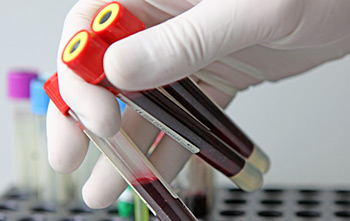
Can Fermented Foods And Drinks Boost Your Health?
It’s hard to imagine how food left out to fester could possibly be good for you. But research has shown how some fermented foods contain bacteria that can help preserve the sanctity of what’s referred to as your “gut biome,” or existing colonies of beneficial bacteria, that live in digestive system.
As a result, many fermented foods and drinks have come to occupy marquee space in your local market. Kombuchas (or fermented teas) in various formations line the shelves, emblazoned with health-promoting promises. Other naturally fermented foods, like yogurt and kefir, kimchi, sauerkraut and tempeh, also now seem to be surging in newfound popularity.
SO HOW DO FERMENTED FOODS HELP YOU BE HEALTHY?
“Fermentation was a way to prolong the shelf-life of foods back in ancient times. It was an accidental discovery, which augmented the symbiotic relationship with bacteria that we evolved with over hundreds of years,” explains Vincent Pedre, MD., board-certified internist, clinical instructor in medicine at the Mount Sinai School of Medicine, and author of “Happy Gut: The Cleansing Program to Help You Lose Weight, Gain Energy and Eliminate Pain.”
The “good” bacteria some foods acquire during fermentation may potentially have a positive impact on your overall health while keeping “bad” bacteria at bay. “Fermented foods can produce compounds that prevent and destroy the growth of harmful bacteria in the gut, assist in the production of neurotransmitters, acetylcholine (a chemical released by nerve cells to send signals to other cells) and serotonin (a feel-good chemical produced by nerve cells in your gut), aids in the production of stomach acid, boosts your immune system and improves your mood,” says Sandra Allonen, MEd, RD, LDN, outpatient ambulatory dietitian at Beth Israel Deaconess Medical Center in Boston, MA.
WHY GUT HEALTH IS SO IMPORTANT
“Basically, the gut is the foundation of health upon which every organ in your body is dependent, including your brain,” Pedre explains. “If you can’t absorb nutrients properly, then your body can’t heal. If the gut is so permeable, as in leaky gut syndrome, this has been associated with whole body inflammation, increased risk for metabolic syndrome, glucose intolerance, obesity, dementia and diabetes. Food allergies and sensitivities may be seen on the surface as skin issues, like hives, eczema, and dermatitis, but also internally as migraines, allergies, and asthma. Thus, the gut is strongly connected to every organ system, including the brain, and is a major player in the evolution of systemic, chronic disease,” he explains.
Pedre says fermented foods produce vitamins B12 and K2, which impacts the nervous system to the cardiovascular system to the bones; helping the body to eliminate toxins, fending off harmful bacteria, yeast, and parasites, adding what he calls “friendly flora” to the gut lining — even boosting the immune system.
“Seventy percent of the immune system exists all along the digestive tract,” Pedre explains. “Favorable bacteria has a regulatory effect on the immune system, keeping inflammation down and promoting cells that control the immune response.”
Rising awareness of gut health has driven the sale of probiotics (and related fermented drinks like kombucha) into big business. An article that questions the efficacy of probiotics in Scientific American cites statistics from San Francisco–based business consulting firm Grand View Research, estimating the global probiotics market exceeded $35 billion in 2015 and that it will reach $66 billion by 2024.
Read the article in its entirety on NBCnew.com here:
https://www.nbcnews.com/better/health/can-fermented-foods-drinks-boost-your-health-ncna858286

